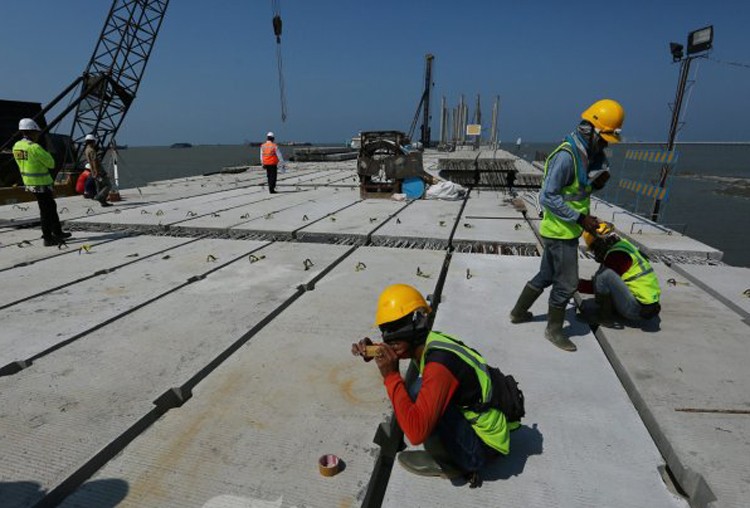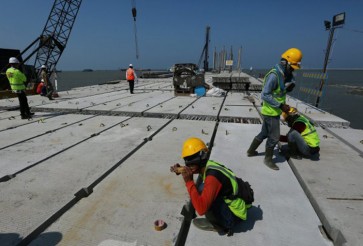Popular Reads
Top Results
Can't find what you're looking for?
View all search resultsPopular Reads
Top Results
Can't find what you're looking for?
View all search resultsRecognizing the benefit of asset recycling
Change text size
Gift Premium Articles
to Anyone
R
ealizing the state budget’s capacity is still limited due to a high deficit ceiling, the private sector and state-owned enterprises (SOEs) should play a greater role in the development of the country’s infrastructure projects.
Based on data from the Committee for Acceleration of Priority Infrastructure Delivery (KPPIP), of the total Rp 3 quadrillion (US$224.4 billion) in investments needed for the development of infrastructure projects in the medium term, the government and SOEs can only provide about 40 percent.
Thus there is still a gap that needs to be financed externally, either indirectly through banks or the capital market, or directly by private infrastructure companies.
An innovative scheme such as recycling assets by state-owned enterprises (SOEs) should therefore be promoted as an alternative to finance such infrastructure projects. It is inarguable that SOEs have an important role. However, SOEs also have its limitations especially on the financing side.
Raising funds through privatization will be difficult for SOEs. Under the Law No. 19/2003 on SOEs, fund raising that will affect SOEs’ equity ownership structure should follow certain processes, which involve the need of legislative approval. As a result of this requirement, several SOEs have preferred to raise funds through debt instruments.
Achieving the latter is also challenging. The country’s infrastructure debt market is still small. Based on observation by Indonesia’s state-owned PT Sarana Multi Infrastruktur (infrastructure financing company), the proportion of infrastructure lending is only around 8 to 20 percent of the total lending portfolio of some big banks.
The debt securities market is also small because of demand scarcity. Institutional investors as targeted investors are in general still investing heavily on money market instruments.


















